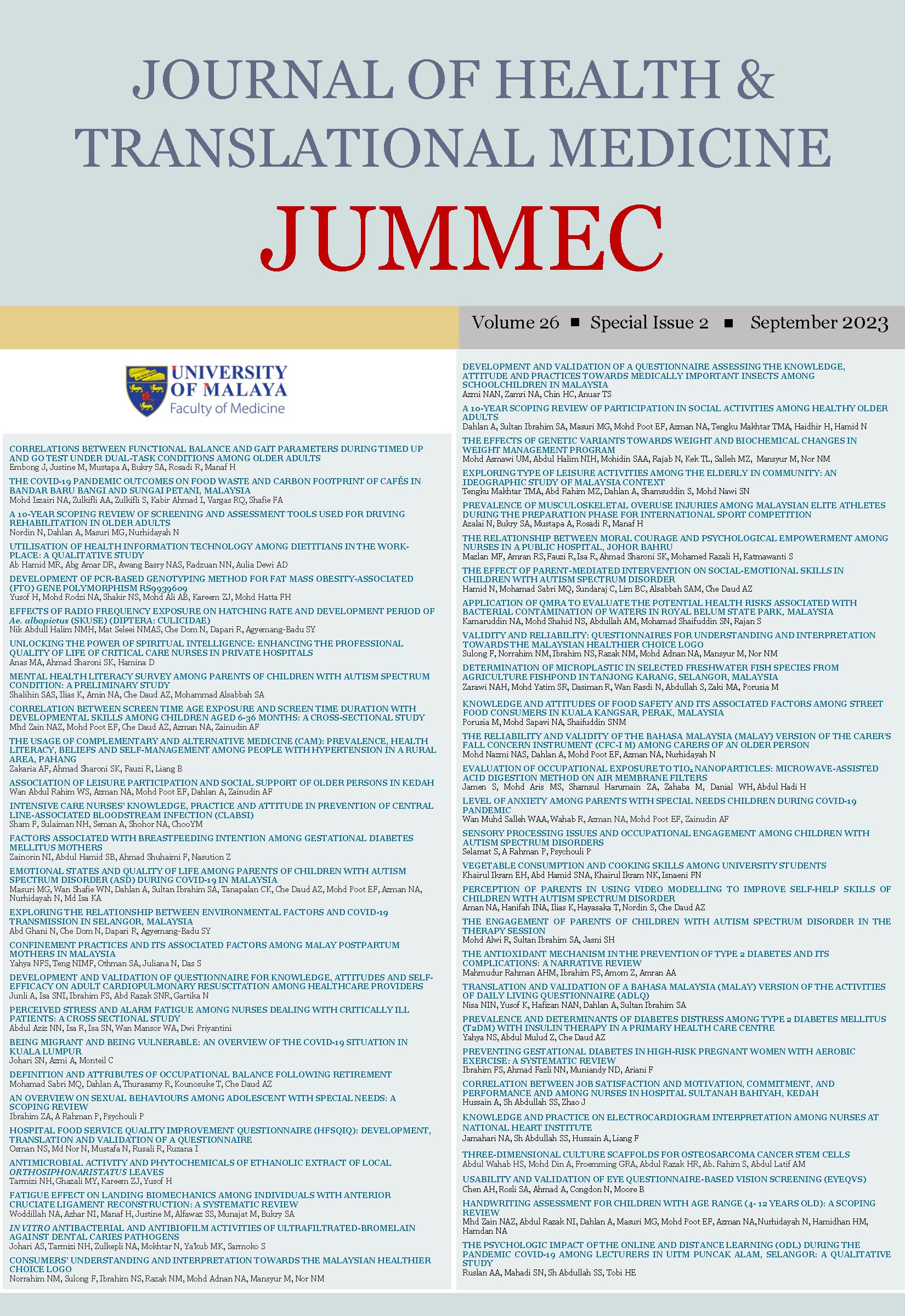THE COVID-19 PANDEMIC OUTCOMES ON FOOD WASTE AND CARBON FOOTPRINT OF CAFÉS IN BANDAR BARU BANGI AND SUNGAI PETANI, MALAYSIA
Received 2023-07-12; Accepted 2023-08-03; Published 2023-09-15
DOI:
https://doi.org/10.22452/jummec.sp2023no2.2Abstract
Cafés, a subcategory of the foodservice industry, are popular as a place to eat and meet with others, among Malaysians and the world population. Their operation partly contributes to food waste and carbon footprint. However, the volume of these parameters fluctuated throughout the COVID-19 pandemic. Further, there is a need to diversify the food waste data of foodservice establishments in Malaysia, across different regions and cultures. Therefore, we conducted an environmental assessment of ten cafés in two of Malaysia’s cafe hot spots, Sungai Petani and Bandar Baru Bangi, to determine their food waste (preparation loss and plate loss) and carbon footprint generation in a week when the COVID-19 restrictions were relaxed. Data on carbon footprint were collected by reading the electricity and water meters and calculated using emission factors. Sungai Petani generated substantially more food waste (77.68 % in total, equivalent to 93.04 kg) than Bandar Baru Bangi (22.32 %, equivalent to 26.73 kg), as revealed by material flow and descriptive analyses. Similarly, the carbon footprint from water consumption in Sungai Petani was 1.03 kgCO2e, generated from 3m3 water consumption, whereas Bandar Baru Bangi produced 0.82 kgCO2e of carbon footprint from 2.39 m3 water consumed, both districts on a Sunday. Contrarily, the carbon footprint related to the electricity usage in both locations was comparable. The largest amount of carbon footprint produced in Sungai Petani was on Sunday, while Saturday showed the highest carbon footprint in Bandar Baru Bangi. These findings will help the future redirection of Malaysia cafés’ management towards more sustainable practices, which can be enhanced with the help of information on customer footfall.
Downloads
Downloads
Published
Issue
Section
License
All authors agree that the article, if editorially accepted for publication, shall be licensed under the Creative Commons Attribution License 4.0 to allow others to freely access, copy and use research provided the author is correctly attributed, unless otherwise stated. All articles are available online without charge or other barriers to access. However, anyone wishing to reproduce large quantities of an article (250+) should inform the publisher. Any opinion expressed in the articles are those of the authors and do not reflect that of the University of Malaya, 50603 Kuala Lumpur, Malaysia.


